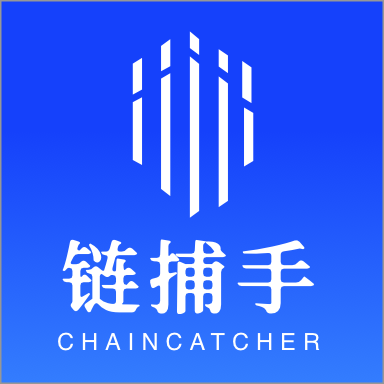DeFiance创始人Arthur:如何在3年内将6位数的投资组合变成9位数?
原文来源:Bankless
原文编译:The Reading Ape
亚洲最大的专注于DeFi的基金DeFiance Capital的创始人Arthur Cheong(Arthur0x),在Bankless播客中分享了他如何在短短3年内将6位数的投资组合变成9位数。
他解释了他在协议中所关注的基本要素,以及他究竟用哪些指标来进行估值,他还分享了哪些代币目前被低估了。在以太坊杀手中,Arthur会押注哪一个?
以下是The Reading Ape对播客要点内容的整理:
一:Arthur0x是谁?
DeFiance Capital(亚洲最大的专注于DeFi的基金之一)的创始人和基金经理,他是整个加密货币领域最成功的DeFi投资者之一,在3年内将6位数的资产变成了9位数。DeFiance Capital的投资风格是:以基本面为基础,而不是叙事或情绪。
Arthur0x的加密之旅始于2018年春天,当时他想想经营一家加密货币研究初创公司,但没有找到产品-市场契合点,因此决定在2018年的熊市中专注于投资,并买了很多当时无人问津的代币。
二:Arthur0x成功的秘密
做好功课和研究,关注的重点不是现在,而是持续的趋势
坚持不懈,特别是在熊市中,人们通常在熊市中就放弃了
相信我们正在建立更宏大的东西,而不仅仅是投机
"我认为加密货币是一个公平竞争的领域,其面向来自不同背景的个人。我并不是来自非常富裕的家庭,我是10年前才来到新加坡的。对于每个愿意付出努力的人,加密货币真正给到了他们机会。" - Arthur Cheong
进入加密货币领域,环顾四周的环境,形成对正在发生的事情的看法,然后将其转化为基金或其他东西,这是有可能实现的
花时间在社区上,与协议的团队沟通,给予支持。这样做,未来你将可能对协议的运行产生影响
三:代币价值累积
在熊市中,代币下跌90%后,还会再跌80%,所以价格必须有一个底线,因为仍然有人在使用这个产品
既然有用户,那么代币肯定会有一些价值积累,因此它不应该归零
这应该会让代币持有者在不景气的时候更有信心
需要注意的是:
代币是否有良好的设计,代币本身是否很好地融入了平台?
该代币是否有强大的价值积累?
该代币是否可作为协议增长的催化剂?
项目方打算如何分配代币?
例子:Synthetix
从一开始就非常喜欢Synthetix的代币经济。
他们率先使用代币通胀来激励社区和早期采用者
通胀水平一开始非常高,随后逐渐减弱,以奖励那些相信协议并承担最初风险的早期用户。
通过承担Synthetix协议的风险,代币持有者可以从协议产生的费用中获得回报,包括原始代币和人们在协议中进行交易时产生的额外费用收入。
例子:Bancor
经历了大量的迭代,最终得出了一个合理的代币经济模式
Bancor为代币持有者创造了最大的价值——40%到60%的费用归属Bancor代币持有者,不是以收入的形式,而是以燃烧的形式。
同同时支持新的流动性资金池
机制仍然非常复杂,没有很多人理解这一点,因此没有得到高度评价
例子:Aave和Compound
两者之间的价值累积是非常相似的
将存款人拥有的一小部分利息计入Treasury
未来,代币持有者可以投票决定如何使用Treasury的累积储备,要么返还给代币持有者,要么进一步投资于协议。
四:如何建立信心和拥有信念?
当你不断地做某件事,并且不断地从你的行动中得到验证,你的信心就会增加
"信心是胜利的记忆。而且我相信,它对每个人都应该是一样的。比如说当你在做某件事情时,你不断地从你的行动中得到某种形式的验证,那么你的信心就会不断增强。" - Arthur Cheong
Arthur第一个重仓的币是熊市中的Synthetix。
花了1个半月的时间写了一份非常全面的Synthetix报告,发表后得到了非常积极的回应
几个月后,市场开始对此作出反应,信心由此建立
由于他不断重复这种方法,尽管比特币占主导地位,他的操作还是成功地超越了比特币的表现,这给了他创办DeFiance Capital的信心和信号
五:DeFiance Capital的优势
可以直接投资于DAO的顶级加密货币原生基金之一
在这个领域工作了很长时间,对这个结构很熟悉
DAO结构也为投资者提供了一些保护,因为大多数人可以影响决策
六:基本面
1. 团队质量,如团队所建立的跟踪记录
2. 协议的估值
3. 技术架构
4. 社区参与度
5. 代币的价值累积
6. 近期的催化要素
关于分散化
分散化只能防止协议黑客攻击
无助于预防相关风险,因为所有标的都在同一时间下跌(熊市)
然而,在牛市中,基于基本面,一些协议将比其他协议做得更好
关于MEME投资盖过了基本面投资
与传统的股票投资有相似之处,在本杰明·格雷厄姆出版他的《证券分析》一书之前,没有人有办法对股票进行正确估值
同样,我们在加密货币中也处于类似的阶段,所以散户需要在每个市场周期中接受教育
关于去中心化交易所(DEX)的估值指标
交易量
相对协议市值所收取的费用,对于非稳定币协议,将交易量的0.05%作为费用,而对于稳定币协议,则略低(例如,Curve是0.04%)
类似于Tradfi中的价格收益比(PE)
锁定的总价值(TVL)——表明这个协议有多少资本保障
资本效率——需视不同协议而定
用户和用户增长——例如,Uniswap没有现金流,因为目前没有价值获取,但有巨大的用户群,用户增长方面的表现行业内做得最好,因此它的估值非常高
七:回购和燃烧
Arthur0x认为,回购和烧毁并不是最理想的解决方案,尤其是当一个协议仍有很大的增长潜力时。
在TradFi世界的早期创业公司中,没有人会进行股票回购或发放稳定的股息。
如果它仍然有很大的增长潜力,资本应该被再投资,而不是直接燃烧资本。
再投资的领域可以是:更多的教育、更多的拓展工作、更多的翻译,以便那些非英语社区的人可以加入战场
给代币持有人分红可能会有税收影响,但仍应有更好的设计方法
八:哪些DeFi协议的价值被低估了,为什么?
Sushiswap
鉴于他们的交易量,价格不应该是现在这样子
还有人认为,Uniswap V3将杀死Sushiswap,因为它就像V2设计的老版本
但是完全没有发挥出来
Uniswap V3更适合主动流动性提供者(LP),也就是专业做市商,散户玩家很难成为V3的被动LP。
一些测试(虽然样本量小)显示,V3的表现不一定比V2好
以目前的价格,Sushiswap的价格是零增长,这不太可能发生
Aave和Compound
借贷在DeFi中是最容易建立护城河的
在以太坊上使用类似设计的新借贷协议,在一年内都无法颠覆Aave和Compound
为什么?建立信任需要很长的时间,这两个协议已经运行了一年多,没有发生安全事故(注:Compound曾出现预言机攻击事故)
也需要很长的时间来建立网络效应,因为你需要在平台上有足够的存款来让人们借款
最后,由于代币的价值更高,它们给出的流动性激励也更有效
九:未来会不会只有一个自动化做市市场(AMM)?
Arthur0x不相信幂律法则(只存在一个AMM来主导市场)
为什么?流动性是可替换的,没有忠诚度
如果有一个新的AMM具有卓越的设计,流动性将流向它,它将在一段时间内占主导地位
当处于平衡状态时,可能会有几个占主导地位的AMM,他们的市场份额不会有太大变化
此外,一旦订单达到一定规模,人们也会开始使用聚合器
十:以太坊杀手
大多数对手将无法占据以太坊的主导地位,也许不到5个对手可以与之较量,但无法把以太坊杀死。
目前,超过95%的DeFi和NFT都在以太坊上,在未来两年内,可能会看到这个数字下降到80%。
原因
其他协议都是从零开始的,因此它们的增长速度会比以太坊快
一些ETH的杀手正在使用蓝海战略,瞄准现在还没有加入的新用户
以太坊的网络效应根深蒂固
兼容EVM的扩展方案进一步帮助巩固以太坊的网络效应
以太坊本身也在不断改进
以太坊有一个清晰的路线图,说明他们计划如何进一步去中心化
更多关于以太坊的网络效应
Binance之前试图建立他们自己的DEX,但是失败了,在他们把握以太坊网络效应的精髓后,才迅速成为拥有最大用户群的加密货币公司。
切换基础层并不是一件容易的事情,这与切换Dapp不同
"我认为最好的比喻是App Store。就像现在,两个最主要的应用程序商店是谷歌和苹果。即使是微软这么大的科技公司,想在这方面进行竞争,有自己的应用程序商店,也做不到。" - Arthur Cheong
一个很好的比喻,就像谷歌和苹果有自己的应用商店,但当微软这样的大科技公司试图在这方面竞争时,他们也失败了。
十一:Arthur0x将押注于哪个ETH杀手?
Solana是与Ethereum竞争的最佳对手
不能在以太坊最擅长的领域展开竞争,必须采用全新的方法
Solana不会像以太坊那样去中心化,并且由于需要更高的硬件要求,他们的节点会少很多
宁愿把赌注押在完全不同的东西上,而不是押在对以太坊做边际改进的另一个协议上
十二:东西方对加密货币的看法有何不同?
亚洲可以分为2个不同的部分:英语地区和非英语地区
历史和文化因素将决定采用的速度
说英语的地区
如:印度和东南亚大部分地区
采用是相当普遍的
理解DeFi并以重要方式使用它
拥有一个体面的DeFi社区
需要在协议中看到更多内置检查和平衡
华语地区
如:中国
在2018年的时候,最初怀疑(这些地方能否成气候),但在2020年的DeFi夏季之后,可以看到很多新进用户。
对加密观念的关注略少
更多关注资产的自我保管,因为他们看到了OKEx事件,在两个月内没有人可以提取任何余额
他们的信任更多是对协议背后的团队
日本和韩国
由于语言障碍,与其他地区相比,使用DeFi的人不多。
目前,超过95%的DeFi和NFT都在以太坊上,在未来两年内,可能会看到它下降到80%。
通过使用翻译和建立一个强大的外语社区,可以跨越语言障碍
引用Vitalik去中国宣扬以太坊的例子,现在中国有一个很大的委员会(committee),理念分享的氛围很好。
十三:新加坡政府对加密货币的看法
最高层的监管机构确实试图理解加密货币,他们的理解水平可能是全球监管范围内最高的之一
他们知道DeFi的好处,但是否百分之百买账还有待观察
他们希望等待,看看DeFi的好处是否能转化为现实世界的活动
遵循由美国和欧盟等主要国家起草的FATF指南
少了很多起诉和攻击性
十四:对2021年下半年的加密货币行业的看法
在Polygon和Binance智能链的成功之后,有更多的扩展解决方案
更多的用户将加入,现在有100万用户,但到年底可能会增加到500万到1000万
预测TVL将在年底前达到2000亿
预测ETH价格到年底将达到5千到1万左右



